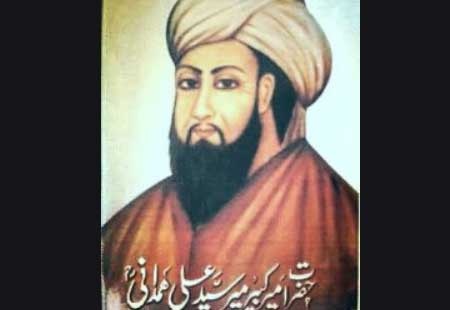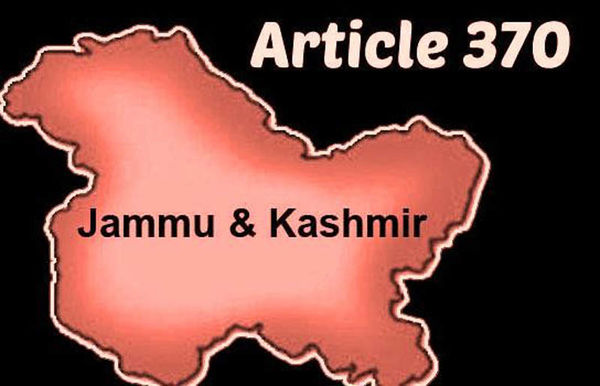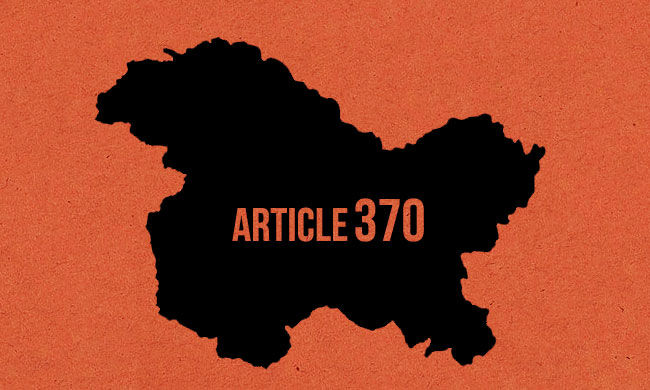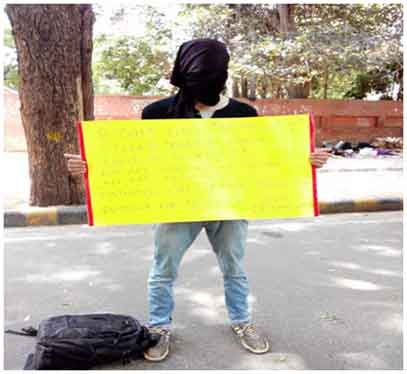
Kashmir has had many a period of glory before the advent of Islam. It has a long chain of dynasties, Suraj Bansi, Pandava, Maurya, Kushan, Gonandya, white Huns, Karokata, Utapala, and Loharas. Some of the regimes had not only their periods of glory in this beautiful land, but their borders extended deep in South of India and touched the borders of Gandhara. For his conquering territories after territories, Kalhana called Laltadiditya ‘universal monarch moving around the earth like the sun.’ History bears testimony that Kashmir society was a highly developed and advanced at various periods of its history. This society of intellectual supremacy had started decaying more than two hundred years before the advent of Islam. It had been infested by deadly virus of intrigues, conspiracies, rebellions, oppressions, murders and suicides. The history of two centuries preceding the establishment of a Muslim state was marked by, “short reigns, murders, suicides, plots, conspiracies, rebellions and fiscal exactions.”1 “The strife between the kings and the feudal barons on one side and tyranny of bureaucrats, on the other hand, crushed people were crushed. Economic domination was another demon which destroyed them.2”
If one looks objectively at the situation that obtained in Kashmir at the time of the advent of Islam, it was not much different than that prevailing in Arabia in sixth century A.D. The moral and material corruption was at its peak. It was a society of ‘drunkards’ and ‘womanizers’. History is refrains with titillating stories about the sexual exploits by kings and feudal lords. It was not only the moral corruption that had set in decay in the society but also the misgovernment. “The people were subjected to the hated corvee. Made to pay all kinds of taxes besides to illegal exactions of the authority. Life and property were not safe, agriculture declined, and there were periods when trade came to a standstill.”3 In this bizarre, murky and gloomy situation, Islam came as a great blessing. ‘It came as a blessing not only politically but intellectually and spiritually.’ “It revolutionized the thinking of the people and their whole attitude to life.” As very aptly stated by eminent and emancipated Kashmir historian Prem Nath Bazaz, “politics had dehumanized the Kashmiris; Islam made them men again.”4
It was the strong Islamic message that proved as a catalyst in the establishment of the Muslim rule in this State. Many a historian has looked at the establishment of the Muslim government through tinted glasses. Gyalpo Rinchana was the first Muslim ruler of Kashmir. He came to the fold of Islam and adopted the name of Sadur-U-Din. Some Hindu historians, even Muslim historians, blindly aping them have invented a story that he embraced Islam because it was not a tradition in Hinduism to allow converts to their faith. According to Jonaraja, ” Rinchana wanted to become a Shaivite but was not allowed by the Chief Brahaman Daveswani, on the plea that there existed no place for converts in the Brahmanical fold,5″. It seems a figment of imagination which gets exploded on the touchstone of history. The ancient and medieval history of Kashmir is replete with stories of Hindus converting to Buddhism and Buddhist converting to Hinduism and vice versa. It is also said that after disappointment Rinchana had left himself to the winds of chance. As very appropriately said by Prof Mohudin Hajani, ” Rinchana who could become the ruler of Kashmir would not leave such a decision to chance. The fact remains that his thirst to find truth brought him into contact with Sayyid Sharaf-ud-din. He learnt from him the soul and spirit of Islamic principles which are free from rituals.”6 There can be no denying that his coming within the folds of Islam encouraged many others who were influenced by the new faith to embrace. It changed the social status of Muslims who had been declared as untouchables – Mleechhas. It were forced to live in insulated colonies such that of Mallechhmar near Aali Kadal, now the people who had embraced the new faith were the rulers.
A substantial section of people bade farewell to their traditional beliefs and converted to Islam during this period, but it was Mir Syed Ali Hamadani in the words of Sir Walter Lawrence who “practically established Islam in Kashmir”7
Mir Syed Ali Hamadani born on ‘ Monday 12th of Rajab 714 (hijra) 1314 A.C at Hamadan arrived in Kashmir in the period of Sultan Shahib-u-din (1372). Some historians hold the view that he visited Kashmir but some other historians of greater insight like G. M. D. Sufi into the history of the region think that he visited this place thrice. ” After four months stays,” writes Sufi, “Shah Hamadan – proceeded to Mecca and came back to the valley in 781 (Hijra) (1379 A. D) in the time of Sultan Qutab-u-Din. After a stay of about two and a half years, he went to Ladakh in 783 Hijra (1383 A.D.), en route for Turkistan. The third visit of Shah Hamadan took place in 785 (Hijra) 1383 A.C.”8
Mir Syed Ali Hamadani was not a traditional religious preacher who confined himself to the pulpit. He was a great scholar, a great reformer and a revolutionary. He had his hand on the pulse of the situation as it obtained in Kashmir during that period. He was a great missionary, and it was because of his zeal that people in hordes embraced Islam, and almost the entire society gets changed. Many imaginative tales have been invented about his exhibiting supernatural powers and defeating a prominent Brahman ascetic vested with great spiritual powers, who could fly. These stories were conjured by Hindu historian to manifest the supremacy of Brahmans. The writings of this great scholar do not testify these stories. “His writings do not testify his having had an encounter with Brahmans in such supernatural terms.”9
There is need to promote a better understanding of the historical and creative importance of this great descendant of Hazrat Ali10 as very rightly pointed out by Prof. Ishaq, ” based on a careful examination of his major works rather than on the latter-day perceptions of the chroniclers and hagiographers centered around his miraculous exploits.”11 There is no denying that he was a great Sufi saint belonging to Kubraviya silsilah. Scores of books have been written by scholars about his Sufi teachings. Hospice and mosque all over Kashmir valley and many other areas echo with high flown speeches about the Sufi teaching of this great saint. Mir Syed Ali Hamadani was not a routine religious preacher or a scholar; he was a great humanist. His writings and works testify this fact that while he through his writings, deeds and sermons wanted to bring in a just and humane society. Seen between the lines, the focal point of all his works is humanism.
He was no hermit. He laid stress on earning a livelihood through approved and sanctioned methods and ways. “He rejected the traditional Sufi livelihood supported by patronage because he feared that this would make Sufis parasitic on society. He made his living by cap making, and he encouraged his disciples to work for a living”12. It may not smack of much importance today, but it needs to be seen in a historical perspective. It needs to be related to the situations as obtained during his times- when society was infested with religious parasites like Brahmans- who were tyrannical towards other castes. History is full of stories about molten led being poured on the lower caste Hindus for listening to hymns.
He wanted to correct the society, and for that society, he looked for a perfect man. For him, an ideal man was a ‘perfect manifestation of God.’ “He calls him as the grand or complete book, Mushafi-i-jal. He also calls it a spoken book”13 “He emphasized through education and earning a livelihood by sanctioned ways one can achieve the goal of being Insan-Kamil (the perfect man). He was critical of those ulemas and mashaikh who were not involved in the task of mass education. According to him, it was the duty of all learned men to educate others: family members, neighbours, and fellow townsmen. An educated man who failed to educate the illiterate according to him would be accountable to God on the day of judgment,”
He was not a routine Sufi who preferred recluses. He was a political thinker. He remained politically engaged and ‘saw no difficulty in meeting and counselling kings because he saw their policies were essential for the welfare of people. His book Zakhritual Muluk is a treatise on politics. His political ideas need to be seen in the perspective of the caste-ridden society of as it was prevailing at the time of the advent of Islam in Kashmir. He was a great revolutionary, and his ideas on governance need to be seen in perceptive of the great gulf that existed between the king and his subjects. For good governance, he laid down certain dos and don’ts. He asked then that “while deciding on matters he should involve people, he should see himself as one of the governed – the people– and pass only such orders as he as a subject he would expect from a benevolent king. He should treat the Muslims in the way he would like to be treated.” A ruler “should not treat his people harshly without good reason”. “He should not keep himself aloof from the people. He should do justice to them and behave sympathetically towards the weak and oppressed. That will endear him to his people.” In modern connotations, the ideas of Hazrat Mir Syed Ali Hamadani for good-governance could be pronounced as democratic, humane and just. If seen in retrospect, it was his ideas that brought out radical changes in Kashmir society during the fourteenth century, and humanism touched new pinnacle. He prescribed a code of conduct for the rulers which have failed to do even today.
Notwithstanding claiming to be democratic societies, the rulers continue to behave as monarchs in living a luxurious life at the cost of the state exchequer. He impressed upon rulers of his times; ‘to follow the traditions of Caliphs in the habit of food and dress. And keep away from the luxurious life.” People – the plebeians were of paramount importance for him. He was deeply concerned about their welfare, both materially and spiritually. He asked the rulers, ‘to be part of people and not to keep aloof from them and behave sympathetically towards the weak and the down-trodden. The officers should not be allowed to oppress the people. Those found guilty of subjecting people should be ‘awarded exemplary punishment.’
Friends: His ideas on governance were not mundane but revolutionary, which are relevant even today when the Western political philosophies and beliefs have inundated us. In his scheme of things for good governance every Tom, Dick and Harry could not be the ruler. To him, a ‘ruler should be knowledgeable. While deciding matters of the State, he should give specific orders in clear words taking into account all implications of issues as well as of order.” There is an important lesson for modern rulers, he emphasizes that for just governance, ‘The ruler should also discern the truth out of the information supplied by spies.”
If read between the lines it were his political ideas that worked as a catalyst for bringing about just and humane society in Kashmir. Mir Syed Ali Hamadani was an economist. While he spread the message of Islam and strived for inducing spiritual highest in people, economic emancipation also engaged his mind. “The seven hundred people who accompanied to him Kashmir brought with them the Iranian arts and crafts.” Majority of the handicrafts in Kashmir have their origin in Central Asia. He popularized the handicrafts and cottage industry amongst the people by working himself and making caps. It is not possible for me here to go into details about the crafts introduced in Kashmir because of the efforts of this great Sufi Saint. The rulers of his time patronized the arts and crafts in the State because of his efforts. The shawl industry and Carpet which has been even today contributing substantially to our G.D.P flourished during his times. In the words of G.M. D. Sufi, “It was through the efforts of the great saint that shawl industry as we all know it was reborn in Kashmir in the latter part of the fourteenth century and shawl industry took a new lease of life. Sultan Quatib-U-Din who was then the ruler of Kashmir patronized and nourished and stimulated it.”15
It has been the all-embracing approach of the Mir Syed Ali Hamadani to the society that has gone a long way helped in promoting humanism in Kashmir and earned the distinction to Kashmir for religious tolerance.
(Endnotes)
1 Islamic Culture in Kashmir by G.M.D. Sufi page No 29 2 Struggle for Freedom by Prem Nath Bazaz Page No 20 3 Kashmir Under Sultans by Mohibbul Hassan page 31 4 Struggle for Freedom by Prem Nath Bazaz Page No 47 5 History of Muslim Rule in Kashmir by R.K. Paramu page 79 6 Islam in Kashmir by Prof Mohu-ud-din Hajani Studies of Kashmir Council of Research page No 43 7 The Valley of Kashmir by Walter R
Lawrence page no 293 8 Kashir by G.M.D. Sufi page Nos 86 9 The Evolution of Shariah consciousness in Kashmir
An interpretation of Mir Syed Ali Hamadani ‘s role by Dr. Mohammad Ishaq Khan, Insight Islamic us 2002 page 1 10 According to Khulasat ul Manaqab his genealogy can be traced to Hazrat Ali through Imam Huassain. His is sixteen direct descent of Hazrat Ali 11 The Evolution of Shariah consciousness in Kashmir
An interpretation of Mir Syed Ali Hamadani ‘s role by Dr. Mohammad Ishaq Khan, Insight Islamic us 2002 page 8 12 Editor Note by S.M. Waseem on the proceedings of seminar conducted by Jamia Mila Islamia New Delhi published by Kanishaka Publishers and distributors. 13 Hamadanis concept of Superman by Hayat Aamir Ansari page 39 15 Islamic culture in Kashmir by G.M.D. Sufi page No 233
Z. G .MUHAMMAD
Columnist and Writer
Srinagar,
Kashmir.
www.peacewatchkashmir.com
SIGN UP FOR COUNTERCURRENTS DAILY NEWS LETTER
















































